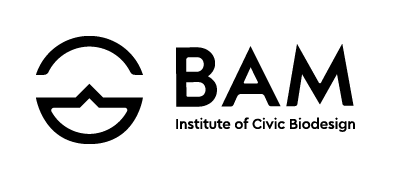Quaker values & civic bridge-building
Here in Nashville, I’ve joined the Peace and Justice Committee of the local Friends Meeting—a group of Quaker activists devoted to tackling injustice in our community. The committee is re-forming after years of inactivity, emerging anew to confront the racial inequities pulling record numbers of people to the streets in protest.
My experiences exploring the Quaker faith and getting to know the Friends convinces me that this group is uniquely poised to build bridges in their communities; there’s something special about Quaker values and their democratic procedures that allow for this. I doubt many spiritual communities are so perfectly suited to connecting disparate segments of society. In essence, civic bridge-building must be egalitarian and grassroots-oriented; Quaker practices embody this at the small-scale and thus have a solid basis for transferring these skills to more complex networks in the wider community.
But before I develop this idea further, it bears mentioning that the Quaker tradition I’ve come to know is not universal. There is such a thing as Quaker evangelism, and “programmed” weekly meetings that follow a structure not altogether dissimilar from a Sunday church service. Some Quakers lean more heavily on their roots in Christian theology. I’m not talking about these strains within the Society of Friends.
The Quaker tradition I know is quintessentially humble in its exploration of spiritual knowledge. Each Friend is understood to have a small piece of the existential puzzle. There are Quaker Christians (like the originators of the faith), Quaker Buddhists, Quaker Atheists, Quaker Animists and any number of nuanced systems of agnosticism and belief. This egalitarian approach to spiritual knowledge is further reflected in the lack of pastors/priests and other authority figures in the Meeting—and also the lack of a primary spiritual text.
I would argue that an essentially un-authoritarian approach to Truth is vital for bridging the gaps between community stakeholders with distinct perspectives and worldviews. As far as spiritual practices go, the Quaker practice of deep listening in community spaces might be among the most helpful for the civic biodesigner.
In the Nashville Meeting, we use the acronym SPICES as a point of common understanding for Quakers to rally around. SPICES stands for the core Quaker values, or “testimonies”: Simplicity, Peace, Integrity, Community, Equality, and Stewardship. These interrelated values are pivotal to the Quaker identity, and they also help to flesh out a useful approach to civic bridge-building.
For instance, one of the first acts of the Peace and Justice Committee has been to craft a couple of “minutes” regarding BIPOC issues and formal acknowledgement of Native American heritage sites and their traditional names; the Meeting wishes to Steward anti-racist consciousness and action in Nashville. A minute is a Simple document that states a common understanding and a plan of action; it is created and iterated in an inclusive process of development (involving group discussion and editing), and finally voted on to determine if the Meeting wishes to adopt it as policy.
This process stresses the opportunity for anyone attending the Meeting to have an Equal role in developing a Community-wide activist strategy, or giving feedback on it. The inclusive process and the resulting document aims to create a greater sense of Peace, and to embody Integrity in aligning Friends’ activities with their stated values. This moral and spiritual alignment within an activist agenda is a key facet of the Quaker approach to civic bridge-building. It happens internally through developing and adopting minutes, which then creates a solid foundation for focused and values-driven community engagement outside the Meeting House.
Although I’m not a formal member of the Society of Friends, I often look to this community to guide me with their ardent, conscientious and thoughtful approach to community development. In future posts, I will feature some exemplary civic bridge-builders among Friends I know. It’s delightful to be a part of their unique form of worship and activism.
